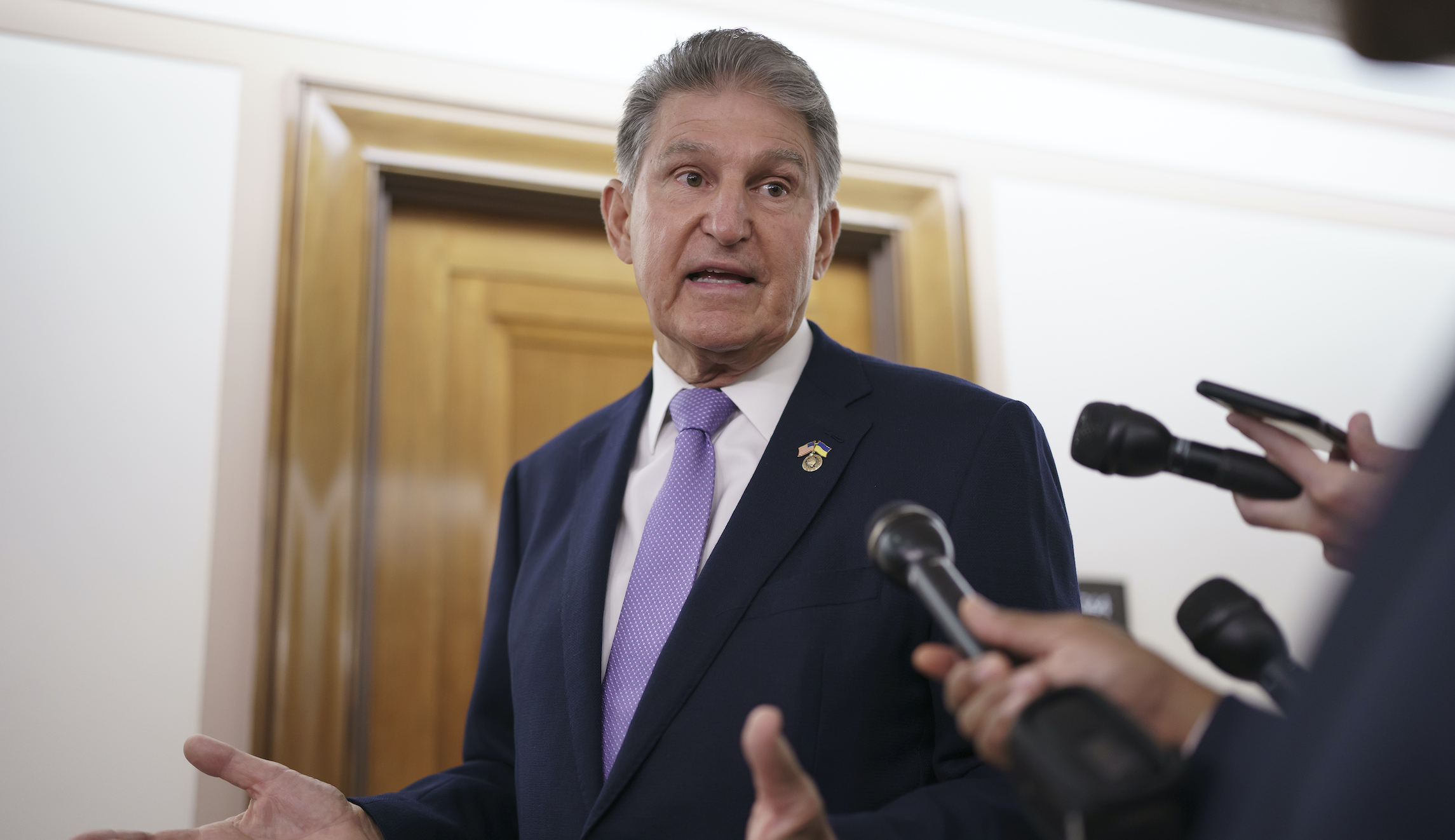The reconciliation deal struck between Sen. Joe Manchin (D-WV) and Majority Leader Chuck Schumer (D-NY) would revive three recently canceled offshore oil and gas lease sales, a tough concession to make for Democrats who are hawkish on climate change and want to end the program altogether.
Manchin and Schumer announced their agreement on a tax and spending bill Wednesday afternoon after months of negotiations, especially over the fate of tax hikes and green energy tax incentives designed to facilitate reductions in fossil fuel use across the economy. The resultant agreement, which would provide some $369 billion in a broad category described as “energy security and climate programs,” would require the Interior Department to hold three offshore lease sales it canceled in offshore Alaska and the Gulf of Mexico.
THE SHAPE OF THE ENERGY BATTLEFIELD
The three sales in question were contemplated in the 2017-22 Outer Continental Shelf leasing program, but the Interior Department canceled them in May, citing a lack of industry interest and ongoing litigation.

Under the new agreement, Lease Sale 258 in Alaska’s Cook Inlet and Lease Sale 259 in the Gulf of Mexico must be carried out no later than Dec. 31 of this year, while Lease Sale 261, another Gulf sale, must be held no later than Sept. 30, 2023.
Additionally, the bill would reinstate the lone offshore sale the Biden administration carried out last year, Lease Sale 257. The sale, which covered acreage in the Gulf of Mexico, was carried out in November pursuant to a federal court ruling that held up President Joe Biden’s pause on all new leasing. But the sale is currently tied up in courts.
Environmental groups successfully sued to stop the sale. Judge Rudolph Contreras invalidated the sale and remanded it to the agency in January on the grounds that the Interior Department failed its environmental review obligations. The American Petroleum Institute, a leading oil and gas industry group, is currently appealing the ruling.
Notably, the Biden administration hadn’t awarded bids for Lease Sale 257 when it was invalidated. The reconciliation agreement would require the Interior Department to award bids to the highest bidder for each tract within 30 days of passage, although it’s unclear how exactly litigation would affect such responsibilities.
An offshore industry source said the provisions supporting oil and gas were totally unexpected from negotiations over a bill, whose primary motivation from the outset was to facilitate a more rapid phasing out of fossil fuels.
“It’s a complete surprise, especially considering how involved the package is and how public the Build Back Better blowup was,” the source said, referring to the House-passed Democrats-only spending bill that failed in December after Manchin withdrew his support.
The agreement’s language supporting offshore leasing followed repeated overtures from Manchin to the administration, urging officials to support more domestic oil and gas development in response to high energy prices.
Manchin is one of a handful of congressional Democrats who asked the Biden administration to move faster in developing the next offshore leasing program to follow up the 2017-22 program, which expired on June 30.
The Interior Department ultimately issued a proposed program well behind schedule on July 1. The proposed program contemplated between zero and 11 new offshore lease sales between 2023 and 2028.
New lease sales would flout a series of campaign promises that Biden made to restrict both onshore and offshore oil and gas leasing, but Manchin made clear that measures supporting domestic oil and gas production were a condition of his support for a reconciliation bill.
“I want an energy policy,” Manchin told a West Virginia radio host on July 15 after negotiations for the reconciliation bill had reportedly cratered again. “The only way I understand, if you’re going to get the price of gasoline down and the world is demanding more fossil — everywhere in the world — is that we need to produce more.”
CLICK HERE TO READ MORE FROM THE WASHINGTON EXAMINER
The bill includes many other green energy priorities that more liberal Democrats favor. It would provide some $30 billion for production tax credits to encourage domestic manufacturing of solar panels, wind turbines, batteries, and critical minerals processing and investment tax credits valued at $10 billion to build clean technology manufacturing facilities.
It would also provide consumer tax credits to encourage new and used electric vehicle purchases, something that had been a sticking point for Manchin, who at one point called it a “stupid” idea.
